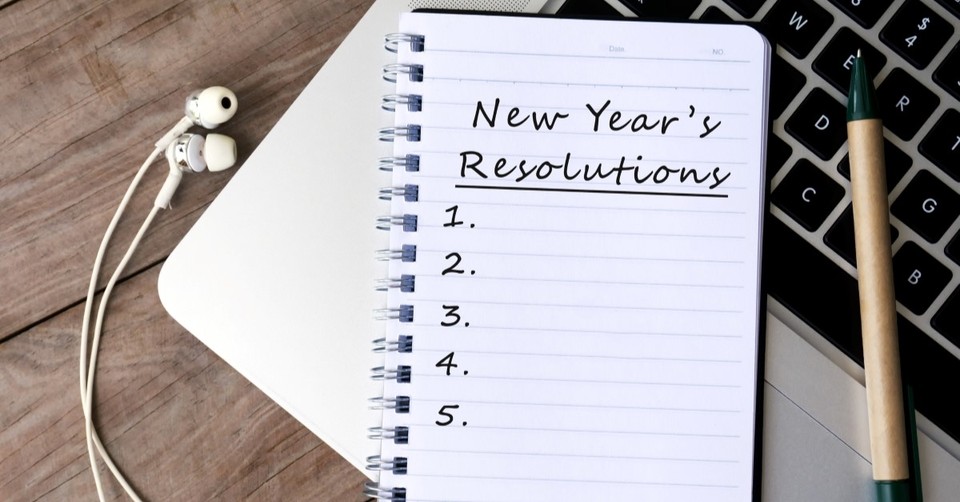4 Ways New Year Resolutions Can Actually Be Harmful

With a new year comes new resolutions and goals. It is popular to plan for weight loss, a new hobby, reschedule your world, resolve to focus on self-care, and so on. Gyms see an increase in memberships; every website seems to have a diet-focused advertisement suggesting now is the time to lose weight, and even financial planning becomes a focus—not a bad thing—for a new year resolution.
So why, then, do some argue that resolutions can actually be harmful? Is it bad to plan to lose weight and get healthy? Is it detrimental to consider self-care and improvement? Why would anyone argue that creating a budget is a bad idea?
Here's the quick and fast conclusion: resolutions may be harmful because some experts say that over 80% of resolutions fail, which can lead to depression, an increase in use/practice of the bad habit you're attempting to overcome, and a sense of guilt or incompetence which can lead to worsened mental health.
Let's break it down even further:
1. New Year's resolutions come with the expectation of quick change.
Even though most of us enter into a resolution with the head knowledge that it will take time and determination, we still innately want to see progress and even change in a short amount of time. Healthy weight loss, for example, can take months. Ending a smoking habit can take therapy, lots of self-control, and time. The basic fact is that resolutions realistically stretch over long periods with minute changes that must hold up against strong temptations to quit. Without seeing rewards quickly, the impulse to give in "just once" or quit permanently comes fast and frequently.
2. New Year's resolutions typically require an entire reset of a habit.
They say it takes three weeks to form a habit but two to ten months to break one. Whether the science behind either of those claims is true, the bottom line is that resolutions are usually tied to habits. Most of the habits are considered "bad," while those bad habits are there because they make us feel good. It's a vicious equation that can boggle the mind if you think too hard. But frankly, resolutions are usually geared toward giving up something we prefer to keep. This leads us to point number three.
3. New Year's resolutions ask us to give up what we want.
Think about it. We want to lose weight, quit smoking, or learn to set money aside. But we're in this predicament because we also want to eat good food, relieve our stress by relaxing albeit unhealthy habits, and enjoy the dopamine fix of spending money on impulse. So, it comes down to which do we want more. We rarely prefer resolution over habit. This sets us up to fail because we simply prefer where we are to where we could be. It's a comfort thing. It's familiar. It makes us happy—even if it's killing us.
4. New Year's resolutions aren't fun or comfortable.
When was the last time you worked out for forty-five minutes, three to five days a week? Some of you are all, "Oh yeah, all the time," but many of us are gasping for air just thinking about it. When was the last time you gave yourself a monthly spending allowance of fifty dollars? That's unrealistic, you say. Hmmm. And for those of you who are opting for a resolution that is a bit simpler, what happens when you decide to cut back the hours of TV you watch, but you just saw that new trailer for a new season of your favorite show? Resolutions typically don't equate to our personal comfort. They're not usually fun. Our psyche, bodies, and emotions usually end up balking at the very existence of the resolution.
"According to a Forbes Health/OnePoll survey conducted in October of 2023, 61.7% of respondents say they feel pressured to set a New Year's resolution. In addition, many respondents are planning on setting multiple goals, with 66.5% stating they plan on making three or more resolutions for the year ahead."
So does this mean you shouldn't make New Year's resolutions? No. But it does mean you may need to take a step back and look at resolutions more realistically.
Some of the suggested methods for making resolutions not only attainable but healthy and possible to obtain are:
1. Downsize your goals. Make them smaller and more obtainable. Instead of a 100 lb weight loss, consider 10 lbs. Instead of quitting smoking altogether, how about decreasing from one pack a day to three-quarters and then decreasing from there after that goal has been achieved?
2. Keep your "why" in front of you. Instead of focusing on the speed at which you're achieving your goal or noticing the rate of difficulty, use your "why" as an incentive to keep pushing toward that realistic goal that is possible to obtain because you downsized your resolution.
3. Ask for help. This means you may need to be vulnerable but confide in someone you trust to be your accountability throughout the process. Listen to them if they feel your resolution is unrealistic. Don't be afraid to seek medical or professional help if you're addressing a more serious condition such as obesity, drug habits, alcohol consumption, etc. Asking for help is not a sign of failure or weakness. It's just the opposite.
New Year's resolutions can be harmful because, in the end, most of us will not achieve the unrealistic goals we've set. Discouragement sets in. A feeling of failure and self-deprecation. Depression at the fact you cannot achieve, and so on. Resolutions become a hamster wheel you run on year after year until you either roll your eyes because all you can do is laugh at your failure or sink into a pit of despair because you really are just that undisciplined of a failure.
So, research what you want to be resolute in changing. Take a look at measurable and achievable goals. Know yourself and what your response will be if you don't make it. Think of a one-month resolution rather than an entire year, and make it smaller and something that can be celebrated.
Resolutions have their place. Habits can be changed, and many of them should be changed. Let's set ourselves up for success!
"The way I look at it, every day that I'm moving forward is a day I'm not moving backward." —Bobby Bones, radio personality
So, look forward, take baby steps, and be forgiving, realistic, and wise. The New Year can be your friend, or you can be your worst enemy.
"You influence yourself by changing your circumstances and how you think of them. Often, framing the same situation in a different way can provide a substantial boost to your motivation." - behavioral scientist Ayelet Fishbach
Jaime Jo Wright is an ECPA and Publisher’s Weekly bestselling author. Her novel “The House on Foster Hill” won the prestigious Christy Award and she continues to publish Gothic thrillers for the inspirational market. Jaime Jo resides in the woods of Wisconsin, lives in dreamland, exists in reality, and invites you to join her adventures at jaimewrightbooks.com and at her podcast madlitmusings.com where she discusses the deeper issues of story and faith with fellow authors.
Originally published December 27, 2023.







